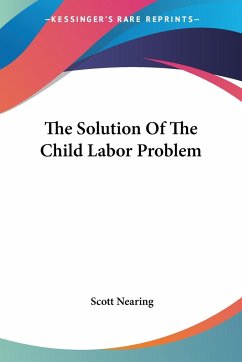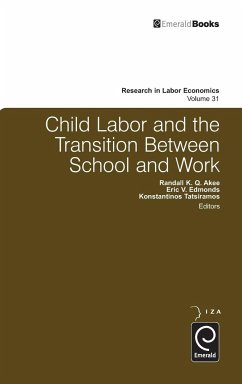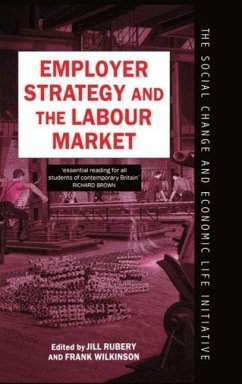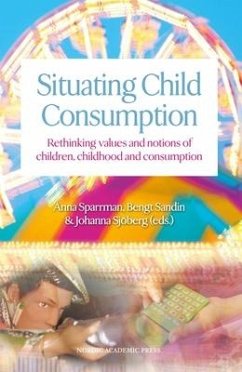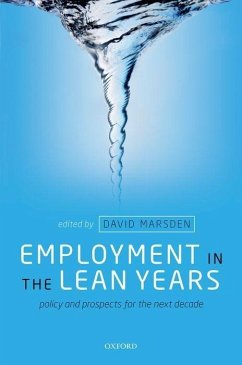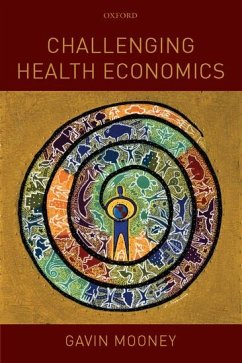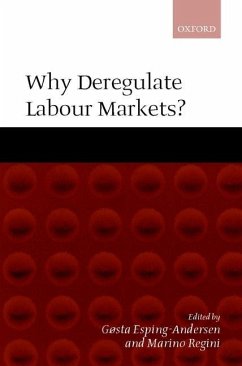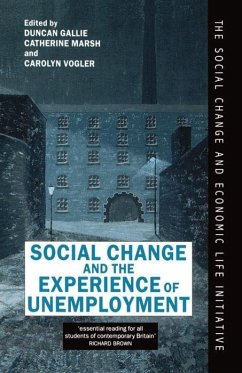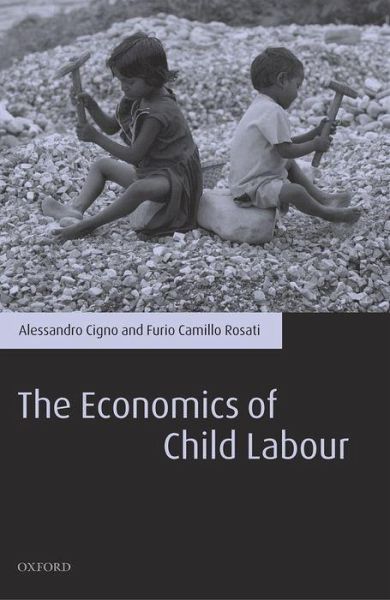
The Economics of Child Labour
Versandkostenfrei!
Versandfertig in 1-2 Wochen
172,99 €
inkl. MwSt.
Weitere Ausgaben:

PAYBACK Punkte
86 °P sammeln!
Children throughout the world are engaged in a great number of activities classifiable as work. These range from relatively harmless, even laudable, activities like helping parents in their domestic chores, to morally and physically dangerous ones like soldiering and prostitution. If we leave out the former, we are left with what are generally called "economic" activities. Only a small minority, less than 4 percent of all working children, are estimated to be engaged in what ILO defines as the "unconditional" worst forms of child labour. The absolute number of children estimated to be engaged ...
Children throughout the world are engaged in a great number of activities classifiable as work. These range from relatively harmless, even laudable, activities like helping parents in their domestic chores, to morally and physically dangerous ones like soldiering and prostitution. If we leave out the former, we are left with what are generally called "economic" activities. Only a small minority, less than 4 percent of all working children, are estimated to be engaged in what ILO defines as the "unconditional" worst forms of child labour. The absolute number of children estimated to be engaged in the latter is, however, a stunning 8.4 million. Should we only be concerned about the worst forms of child labour? Most forms of child labour other than the worst ones have valuable learning-by-doing elements. Furthermore, child labour produces current income. If the family is credit rationed, child labour relaxes the liquidity constraint and increases current consumption. There is thus a trade-off between present and future consumption. To the extent that current consumption has a positive effect on future health (hence, on the child's future earning capacity and, more generally, utility), this trade-off may be lower than one might think. This book provides a blend of theory, empirical analysis and policy discussion. The first three chapters develop a fairly comprehensive theory of child labour, and related variables such as fertility, and infant mortality. Chapter 4, concerned with the effects of trade, contains both theory and cross-country empirical evidence. The remaining chapters are country studies, aimed at illustrating and testing different aspects of the theory in different geographical contexts. These chapters apply the latest developments in microeconometric methodology for dealing with endogeneity, unobserved heterogeneity, and the evaluation of public intervention.





